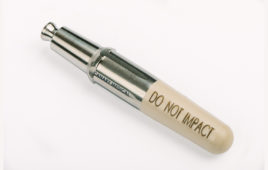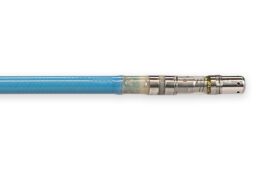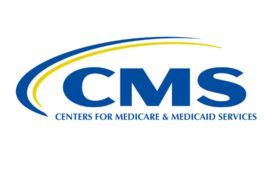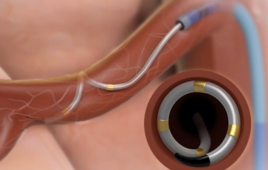DeviceTalks Weekly, powered by MassDevice
In this week’s DeviceTalks Weekly Podcast, we talk with Gail Daubert, founding partner of 4Front Strategic Partners, a new reimbursement strategy firm.
Daubert, a trained ER nurse and former partner at Reed Smith LLP, co-founded 4Front following some personal tragedy in her life.
The interview with Daubert includes the below exchange regarding CMS’s proposed rule change that would open up reimbursement for Innovative breakthrough technologies.
To hear her story, listen to this episode of the DeviceTalks Weekly Podcast.
You’ll also hear:
- Chris Newmarker, executive editor of life sciences at MassDevice, reports on the five biggest Medtech newsmakers, including Medtronic, IBM, Elon Musk and CMS.
- Karen Long, managing director of KCK, share the firm’s strong interest in medtech investing.
DeviceTalks Weekly: Please explain the impact of the new rule.
Gail Daubert: If it’s adopted as proposed (this proposed rule) will ensure that completely new breakthrough technology will be covered by Medicare. There are three components to reimbursement or payment: coding, coverage, and payment.
Obtaining coverage is perhaps the most challenging component – it generally requires multiple peer-reviewed publications and long-term follow-up, especially for implanted devices. In a separate proposed rule, CMS discussed additional opportunities to obtain payment for breakthrough devices. There is only component missing — CMS needs to set up a streamlined process to establish a code that describes the new technology procedure. And I’m sure many startup companies and even well-established companies will most likely be commenting on that process. There needs to be an easier way to obtain a billing code, a billing code is needed to report and get paid for the procedure.
DTW: If I’m CEO of a company developing a new technology, it doesn’t mean that I’m automatically in line for reimbursement from Medicare, but what does it mean? How does this make my life easier?
Gail Daubert: If it’s adopted, once you obtain a billing code, then you will have an assurance that as the claim is processed, the provider will be more likely to embrace the adoption of the new technology, because they know that…there’s going to still be this delay, unless CMS modifies it to set up a billing code in conjunction with the expanded coverage. Otherwise, you know, Medicare is proposing to provide coverage on the same date as FDA marketing authorization is received, and that’s going to be problematic because the shortest timeframe to obtain any type of billing code is about four months, five months. So they’re going to, Medicare will start the clock ticking on FDA approval or marketing authorization, and there’ll be sitting there. They’ll know, you know, they will be able to tell a good story that once they have a code, it will be paid — covered — and the hospital should get reimbursement. But I think there’s still going to be a bit of a delay and start up. Companies are still going to have to figure out how to get that code or should begin advocating for a streamline coding process today.
DTW: So per this proposed rule, if my technology gets FDA approval, that automatically puts me on the clock to get CMS reimbursement.
Gail Daubert: It puts you on the clock to get Medicare coverage and coverage means that the procedure is reasonable, necessary, and patients should have access to it. The problem is that the healthcare providers communicate to insurers and to Medicare by reporting billing codes on an electronic claim form. In most instances, if that CPT code or HCPCS code that describes that procedure it’s already loaded into the payer’s system. So to speak, it will generally have a payment rate associated with it. And then will generally be flagged, but it’s covered or non-covered. So it may, if it’s non-covered, it gets kicked out and they, the payer sends their response back to the provider. It’s non-covered for reasons such as, ‘We don’t view this as reasonable and necessary or safe and effective or experimental and investigational,’ and those are all legitimate concerns. So medical device manufacturers are going to need a code, especially a code to put on that claim in order to have the process runs smoothly. I think this is a great improvement and the process. So I applaud what CMS has done. I think there’s still that one missing piece….”
To hear the missing piece, listen to this week’s DeviceTalks Weekly podcast.




